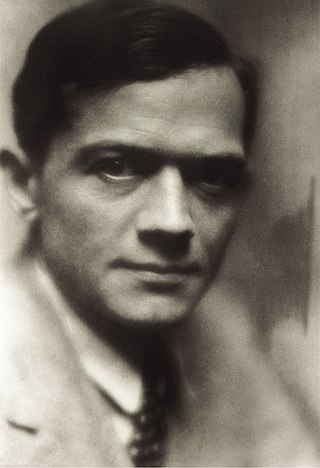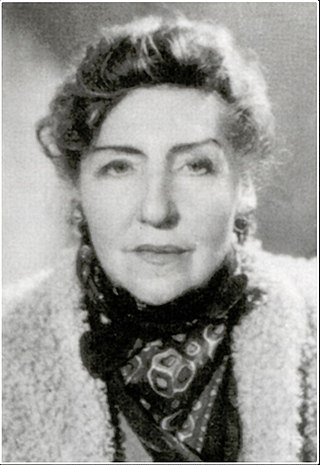
Brad Teare (born 1956) [2] is an American artist and illustrator. He has worked in woodcuts and as a Western landscape artist in oils.

Brad Teare (born 1956) [2] is an American artist and illustrator. He has worked in woodcuts and as a Western landscape artist in oils.
Teare was born in Moscow, Idaho, [2] and raised in Manhattan, Kansas. [3] [4] While in high school, he was the drummer in a rock band. [5] In summer 1975, he moved to forested land owned by his brother in northern Idaho, where he built a cabin with a friend, then helped construct the Pacific Crest Trail in the Alpine Lakes Wilderness Area in Washington. [5] He subsequently studied illustration at the University of Idaho and Utah State University. [3] [6]
He worked in cartoon animation and moved to New York City, where he freelanced as an illustrator for The New York Times [3] [7] and provided the art for several book covers for Random House. [3] [8] In 1992, he created a comic book, Cypher, which was serialized in Heavy Metal and published in 1997 as a graphic novel. A spin-off comic, The Subterranean, appeared online in 2013. [7] [9]
Teare used scratchboard for The Subterranean [7] and woodcuts for many of his book covers. Having moved to the Hudson Valley, he began to focus more on landscapes, and influenced especially by Van Gogh, turned away from woodcuts to painting in oils with heavy impasto, ultimately with a palette knife instead of a brush. [2] [5] [8] [10]
In 1994, he moved to Providence, Utah, where he focused on painting Western landscapes. [2] He discontinued freelance work in 2001. [11] In 2006, two of his works, Color of the Land [7] and the woodblock print Rock Moss, [12] won awards from the Deseret Morning News . He has been an artist-in-residence at the Maynard Dixon residence in 2004 and at Christopher Forbes' Trinchera Ranch in 2006, [4] [6] received the third place award at the 2021 juried exhibition of the American Impressionist Society, and had work included in the annual Quest for the West exhibition [8] [13] at the Eiteljorg Museum of American Indians and Western Art. [2]
His later work as an illustrator includes a 1997 children's book in verse by Rick Walton, Dance, Pioneer, Dance!, [14] and illustrations for The Friend, children's magazine of the LDS Church, [7] where he became senior designer. [15] He has taught continuing education painting workshops at Weber State University [16] and posts instructional videos on his YouTube channel. [5] [17]
Teare was married to trompe-l'œil artist Debra Teare, who died in 2018, [10] [18] and has a daughter. [3] [15]

Ernest Leonard Blumenschein was an American artist and founding member of the Taos Society of Artists. He is noted for paintings of Native Americans, New Mexico and the American Southwest.

Woodcut is a relief printing technique in printmaking. An artist carves an image into the surface of a block of wood—typically with gouges—leaving the printing parts level with the surface while removing the non-printing parts. Areas that the artist cuts away carry no ink, while characters or images at surface level carry the ink to produce the print. The block is cut along the wood grain. The surface is covered with ink by rolling over the surface with an ink-covered roller (brayer), leaving ink upon the flat surface but not in the non-printing areas.

John Leech was a British caricaturist and illustrator. He was best known for his work for Punch, a humorous magazine for a broad middle-class audience, combining verbal and graphic political satire with light social comedy. Leech catered to contemporary prejudices, such as anti-Americanism and antisemitism and supported acceptable social reforms. Leech's critical yet humorous cartoons on the Crimean War helped shape public attitudes toward heroism, warfare, and Britons' role in the world.

John James Held Jr. was an American cartoonist, printmaker, illustrator, sculptor, and author. One of the best-known magazine illustrators of the 1920s, his most popular works were his uniquely styled cartoons which depicted people dancing, driving, playing sports, and engaging in other popular activities of the era.
James C. Christensen was an American illustrator and painter of religious and fantasy art.

Lynd Kendall Ward was an American artist and novelist, known for his series of wordless novels using wood engraving, and his illustrations for juvenile and adult books. His wordless novels have influenced the development of the graphic novel. Although strongly associated with his wood engravings, he also worked in watercolor, oil, brush and ink, lithography and mezzotint. Ward was a son of Methodist minister, political organizer and radical social activist Harry F. Ward, the first chairman of the American Civil Liberties Union on its founding in 1920.

William Victor Higgins was an American painter and teacher, born in Shelbyville, Indiana. At the age of fifteen, he moved to Chicago, where he studied at the Art Institute in Chicago and at the Chicago Academy of Fine Arts. In Paris he was a pupil of Robert Henri, René Menard and Lucien Simon, and when he was in Munich he studied with Hans von Hayek. He was an associate of the National Academy of Design. Higgins moved to Taos, New Mexico in 1913 and joined the Taos Society of Artists in 1917. In 1923 he was on the founding board of the Harwood Foundation with Elizabeth (Lucy) Harwood and Bert Phillips.

Kevin Wasden is a science fiction and fantasy artist, illustrator, and comics artist from Utah. He has illustrated book covers, magazines, and gaming manuals. He attended Utah State University in Logan, Utah where he studied psychology before switching to art and illustration. His first major illustration job was for a professor at USU, after which he moved to New York City, where he illustrated several books and studied oil painting.

Gustave Baumann was an American printmaker and painter, and one of the leading figures of the color woodcut revival in America. His works have been shown at the New York Metropolitan Museum of Art, The Cleveland Museum of Art, the National Gallery of Art in Washington DC, and the New Mexico Museum of Art. He is also recognized for his role in the 1930s as area coordinator of the Public Works of Art Project of the Works Progress Administration.

Julius John Lankes (1884–1960) was an illustrator, a woodcut print artist, author, and college professor.

Jake Parker is an American comics short-story creator, concept artist, illustrator, and animator. Parker worked as a set designer for Blue Sky Studios where he contributed to the animated films Horton Hears a Who, Rio and Epic. Parker is a children's book illustrator; his work includes the 2015 New York Times bestseller The Little Snowplow. In 2016, he wrote and illustrated his first children's book Little Bot and Sparrow which was inspired by his "Robot and Sparrow" comic. He is the creator of Inktober, a popular annual ink drawing celebration during October.

Robert Theodore Barrett is an American painter, illustrator, and professor of illustration at Brigham Young University. His illustrated works include The Story of the Walnut Tree, Silent Night, Holy Night: The Story of the Christmas Truce, and The Nauvoo Temple Stone. He illustrated a book about President Barack Obama, entitled Obama: Only in America (2010), written by Carole Boston Weatherford.

The illustration of manuscript books was well established in ancient times, and the tradition of the illuminated manuscript thrived in the West until the invention of printing. Other parts of the world had comparable traditions, such as the Persian miniature. Modern book illustration comes from the 15th-century woodcut illustrations that were fairly rapidly included in early printed books, and later block books. Other techniques such as engraving, etching, lithography and various kinds of colour printing were to expand the possibilities and were exploited by such masters as Daumier, Doré or Gavarni.
Debra Ann Campbell Teare was an American artist, a founding member of The International Guild of Realism, and "One of the most successful trompe-l'œil painters today. Before switching to oils, Teare spent the first portion of her career "large photorealistic drawings in black and white" charcoals.

Gods' Man is a wordless novel by American artist Lynd Ward (1905–1985) published in 1929. In 139 captionless woodblock prints, it tells the Faustian story of an artist who signs away his soul for a magic paintbrush. Gods' Man was the first American wordless novel, and is considered a precursor of the graphic novel, whose development it influenced.

Charles Buckles Falls, also known as C. B. Falls, was an American artist and member of the Decorative Designers, most known for his illustrations and writings. He is the author and illustrator of several books, including The ABC Book. He is also known for his World War I poster advertisements, such as Books Wanted.
The portrayal of Mormons in comics includes anti-Mormon political cartoons from the 19th and 20th centuries as well as characters in comics who identify as Mormon. In addition, various artists have made comic book versions of parts of the Book of Mormon.

Ethel Mars was an American woodblock print artist, known for her white-line woodcut prints, also known as Provincetown Prints, and a children's book illustrator. She had a lifelong relationship with fellow artist Maud Hunt Squire, with whom she lived in Paris and Provincetown, Massachusetts.